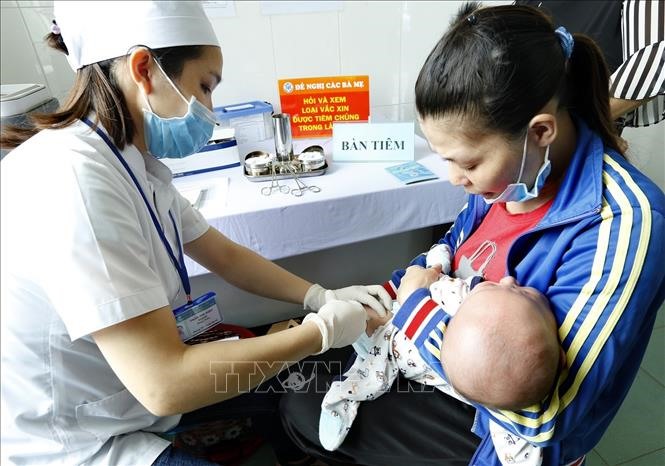 Society
Society

The Ministry of Health plans to use at least seven types of domestically produced vaccines as part of the expanded national immunisation program by 2020.
 |
| The national immunization programme has saved thousands of children over the past 20 years. – VNA/VNS Photo Dương Ngọc |
HÀ NỘI — The Ministry of Health plans to use at least seven types of domestically produced vaccines as part of the expanded national immunisation programme by 2020.
Multiple vaccines including 5 in 1 and 6 in 1 will be given top priority.
Domestic manufacturers can already produce eight out of the twelve vaccines listed in the programme, and with 95 per cent of under-one-year-old children fully vaccinated, Việt Nam is gradually ensuring vaccine safety and proactively controlling dangerous contagious diseases.
According to the ministry, Việt Nam has four vaccine factories which are able to manufacture vaccines for many diseases including diphtheria, measles, polio, hepatitis B, hepatitis A, encephalitis B and cholera.
Since April 2018, 50,000 children under 24 months old have been injected with the domestically produced measles and rubella vaccine (MRVAC), and no severe reactions have been recorded.
This year, vaccines for seasonal flu, Japanese encephalitis and inactivated polio are waiting for circulation approval.
According to Nguyễn Thanh Long, deputy minister of health, Việt Nam was among 42 countries able to produce vaccines and had been recognised by the World Health Organisation for effective vaccine management. The country had the potential to export vaccines, he said.
Technological innovation is important for domestic enterprises to manufacture vaccines that comply with international standards.
Nguyễn Ngô Quang, deputy head of the ministry’s Department of Science, Technology and Training, said that was important to collaborate with the Ministry of Science and Technology to coordinate and manage vaccine research and production.
Đặng Đức Anh, head of the National Institute of Hygiene and Epidemiology, said that the national immunisation programme would offer 12 types of vaccines for all children in Việt Nam free of charge in order to reduce mortality and morbidity from vaccine-preventable diseases.
Prime Minister Nguyễn Xuân Phúc recently approved funding for the programme till 2020. — VNS




